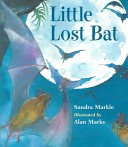
“Chronicles the early life of an orphaned Mexican free-tailed bat, from its birth to its adoption by a new mother. Includes back matter about bats”–Provided by publisher.
Catalog sorted by age group

“Chronicles the early life of an orphaned Mexican free-tailed bat, from its birth to its adoption by a new mother. Includes back matter about bats”–Provided by publisher.
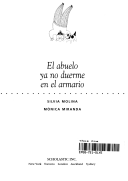
Todo apuntaba para que Alejandro tuviera un cumpleaños común y corriente, pero esta vez recibió un regalo que nunca imaginó: duerme en un armario, juega futbol como nadie y cuenta historias misteriosas sobre marineros. Gracias a este Alejandro comenzará a ver las cosas de manera distinta.
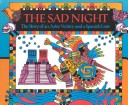
An account of the establishment of the Aztec empire in Mexico and of the terrible battle between the Aztecs and the Spaniards known as the Sad Night, of La Noche Triste.
“This sensitive treatment of La Noche Triste, or The Sad Night, the last battle the Aztecs won against the Spaniards, is a highly effective melding of graceful, lucid text and stylized art. Designed to resemble Aztec codices, the illustrations appear in double-page strips above the bordered text. Beginning with the Aztec migration to Tenochtitlán (now Mexico City), the history of this people is traced through their final conquest by Cortés’s forces…. This title has the distinction of combining myth with historical fact in a particularly successful manner. An engaging introduction to Mexican history.” —School Library Journal
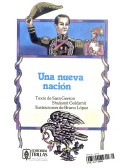
In 1821 the Mexican War of Independence ended when Spanish Viceroy Juan de O’Donojú signed the Treaty of Córdoba. Mexico recieved its independence from Spain.
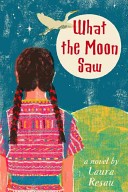
Fourteen-year-old Clara Luna spends the summer with her grandparents in the tiny, remote village of Yucuyoo, Mexico, learning about her grandmother’s life as a healer, her father’s decision to leave home for the United States, and her own place in the world.

A simple description of the childhood and youth of the Chilean author Isabel Allende.
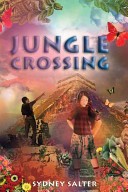
Kat can think of dozens of good reasons not to go on a boring family vacation to hot, grungy Mexico. Number one: missing her friend Fiona’s minicamp. If she’s not there, she’ll begin eighth grade as a social reject. Despite her reluctance, Kat ends up on a teen adventure tour where she meets Nando, a young Mayan guide (who happens to be quite a cutie). As they travel to different Mayan ruins each day, Nando tells Kat his original legend of Muluc, a girl who lived in the time of the Ancient Maya. The dangerous, dramatic world in which Muluc lives is as full of rivalry, betrayal, and sacrifice as Kat’s world at school. And as she makes new friends and discovers treasures in Mexico, Kat begins to wonder: Is she willing to keep sacrificing her self in exchange for popularity?
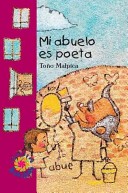
A little girl tries to make her grandfather happy when he becomes sad after hearing from a friend that he is not a good poet after all.

A cumulative rhyme summarizes the life’s work of renowned Mexican potter, Juan Quezada. Additional information describes the process he uses to create his pots after the style of the Casas Grandes people.
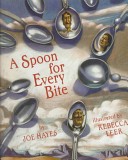
A poor husband and wife ask their rich neighbor to be godfather of their child, and once they are compadres, prey upon his pride and extravagance to trick him out of his fortune.